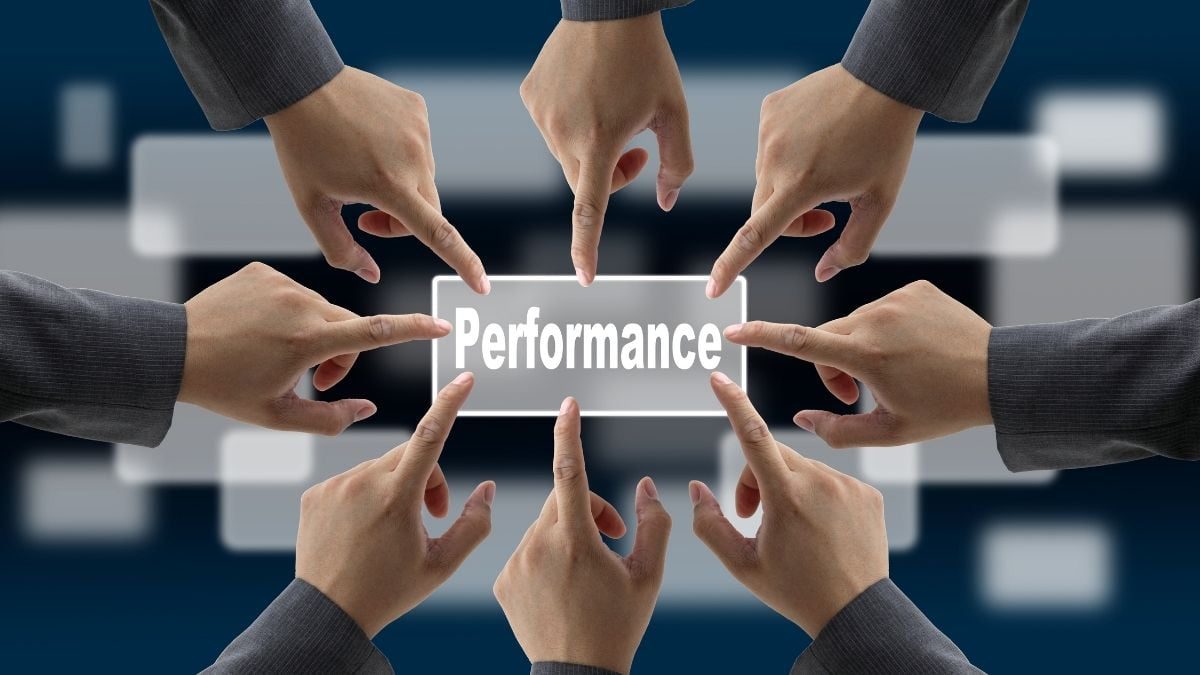Future of Team Performance: Emerging Trends and Innovations
As the business landscape continues to evolve, the future of team performance will be shaped by emerging trends and innovative approaches. By staying attuned to these developments, organizations can adapt their strategies and leverage cutting-edge tools and methodologies to drive sustainable team excellence.
Providing Meaningful Recognition and Rewards
Recognizing and rewarding team members' contributions is a powerful way to boost motivation and engagement. This can take the form of formal recognition programs, public acknowledgments, or opportunities for professional development and career advancement. By celebrating team successes and individual achievements, organizations can foster a sense of pride and ownership among team members.
Motivation and Engagement: Keeping Teams Inspired and Productive
Maintaining high levels of motivation and engagement is a crucial aspect of driving team performance. By cultivating an environment that fosters intrinsic motivation, recognition, and a sense of purpose, organizations can unlock the full potential of their teams, ensuring sustained productivity, innovation, and job satisfaction.
Crafting a high-performing team requires a strategic and intentional approach, addressing key elements that contribute to team success. From establishing a clear vision and defining roles to fostering a supportive environment and promoting continuous learning, organizations can implement various strategies to build and maintain a thriving team.
Fostering a Balanced and Supportive Work Environment
Maintaining a healthy work-life balance and providing support for team members' well-being are crucial for sustaining motivation and engagement. This can involve implementing flexible work arrangements, offering wellness programs, and promoting a culture of self-care and work-life integration.
See more: i999bet
Data-Driven Optimization and Continuous Improvement
By analyzing the data collected through various measurement and assessment tools, organizations can make informed decisions, identify areas for optimization, and implement continuous improvement strategies. This data-driven approach helps teams adapt to changing circumstances, address emerging challenges, and continuously enhance their performance.
The Power of Effective Communication
Open, transparent, and frequent communication is a hallmark of high-performing teams. When team members feel empowered to share their ideas, voice their concerns, and engage in constructive dialogue, it fosters trust, collaboration, and a collective sense of ownership. Effective communication ensures that everyone is on the same page, reduces misunderstandings, and enables the timely resolution of issues.
Promoting Active Listening and Feedback
Effective communication is not just about sharing information; it also involves active listening and providing constructive feedback. By encouraging team members to actively listen to one another, share their perspectives, and offer constructive feedback, organizations can foster a culture of mutual understanding, respect, and continuous improvement.
The Power of Teamwork: Unveiling the Keys to High Performance

Embracing Diversity in Recruitment and Selection
Actively seeking out and attracting candidates with diverse backgrounds, skills, and experiences can significantly enhance the overall talent pool and team capabilities. By implementing inclusive hiring practices, organizations can build teams that are better equipped to tackle complex challenges and uncover innovative solutions.
Conflict Resolution and Team Dynamics: Navigating Challenges and Fostering Collaboration
Effective teams inevitably face challenges and conflicts, and the ability to navigate these situations constructively is essential for maintaining high performance. By developing strategies for conflict resolution and fostering a collaborative team dynamic, organizations can turn potential obstacles into opportunities for growth and strengthened team cohesion.
Key Performance Indicators (KPIs) for Team Performance
Identifying and tracking relevant Key Performance Indicators (KPIs) is a crucial step in assessing team performance. These may include metrics such as project completion rates, quality of work, customer satisfaction, employee engagement, and team productivity, among others. Regularly monitoring and analyzing these KPIs can help teams identify areas for improvement and measure the impact of their efforts.
Fostering a Positive and Supportive Culture
Leaders play a crucial role in shaping the team's culture, fostering a positive and supportive environment that enables team members to thrive. By modeling desired behaviors, promoting work-life balance, and recognizing and celebrating team achievements, leaders can cultivate a culture of trust, collaboration, and mutual respect.
Leadership and Team Performance: The Role of Effective Leadership
Effective leadership is a crucial component in fostering high-performing teams. Leaders play a pivotal role in setting the tone, shaping the team's culture, and empowering team members to achieve their full potential. By embracing a leadership style that combines vision, empowerment, and support, organizations can unlock the true potential of their teams.
Conclusion
Boosting team performance is a multifaceted endeavor that requires a strategic and holistic approach. By understanding the key drivers of high-performing teams, implementing effective strategies, and continuously adapting to emerging trends, organizations can unlock the full potential of their most valuable asset - their people. By fostering a culture of teamwork, communication, engagement, and continuous improvement, organizations can position themselves for long-term success in the ever-evolving business landscape.
Establishing a Clear Vision and Strategy
Effective leaders have a clear and compelling vision for the team's success, and they are adept at communicating this vision to team members. By aligning the team around a shared purpose and strategic objectives, leaders create a sense of direction and motivation, inspiring team members to work towards a common goal.
Employee Well-being and Mental Health Support
As the importance of employee well-being and mental health becomes more recognized, organizations will need to prioritize initiatives that support team members' holistic well-being, fostering a sustainable and high-performing work environment.
Empowering Team Members and Promoting Autonomy
Giving team members the autonomy to make decisions, solve problems, and take ownership of their work can be a significant driver of motivation and engagement. By empowering team members and fostering a sense of ownership, organizations can cultivate a culture of accountability, creativity, and self-motivation.
Promoting Continuous Learning and Development
High-performing teams are committed to continuous learning and development, constantly seeking ways to improve their skills, knowledge, and processes. Providing opportunities for training, mentorship, and skill-building not only enhances individual capabilities but also strengthens the team's overall competence and adaptability.
Measuring and Assessing Team Performance: Metrics and Tools

Encouraging Respectful and Inclusive Team Dynamics
Promoting a culture of respect, inclusivity, and appreciation for diverse perspectives is essential for maintaining a collaborative and high-performing team. By addressing biases, valuing individual differences, and ensuring that all team members feel heard and respected, organizations can create an environment that enables team members to thrive and contribute their best.
Encouraging Cross-Functional Collaboration
Breaking down silos and encouraging cross-functional collaboration can significantly boost team performance. By facilitating interactions between team members with diverse expertise and perspectives, organizations can foster innovative solutions, leverage complementary skills, and enhance overall team effectiveness.
In the dynamic and fast-paced business world, the ability of teams to perform at their best is crucial for organizational success. Effective teamwork not only drives innovation, productivity, and problem-solving but also fosters a positive and collaborative work environment. This blog post explores the various strategies and best practices for boosting team performance, helping organizations unlock the full potential of their most valuable asset - their people.
Empowering and Enabling Team Members
High-performing teams thrive when their leaders empower and enable team members to take ownership of their work, make decisions, and contribute their ideas. By fostering a sense of autonomy and trust, leaders can unlock the full potential of their team, encouraging innovation, risk-taking, and a collective sense of responsibility.
Promoting Equitable Career Development Opportunities
Ensuring that all team members have equal access to professional development, mentorship, and growth opportunities is crucial for cultivating an inclusive and high-performing team. By providing these resources and support, organizations can help team members reach their full potential and contribute to the team's overall success.
Adapting Leadership Styles to Suit Team Dynamics
Effective leaders are adaptable, adjusting their leadership styles to suit the unique dynamics and needs of their team. They are able to balance directive and participative approaches, provide the right level of structure and autonomy, and respond to the evolving needs of the team over time.
Measuring and Tracking Diversity and Inclusion Metrics
Regularly measuring and tracking diversity and inclusion metrics, such as representation, employee engagement, and career progression, can help organizations identify areas for improvement and implement targeted strategies to enhance diversity and inclusion within their teams.
Agile and Adaptive Team Structures
The rise of agile methodologies and adaptive team structures will enable organizations to respond more quickly to market changes, customer needs, and emerging challenges. Embracing these flexible frameworks can help teams stay nimble, innovative, and responsive.
Fostering Psychological Safety and Trust
Cultivating a sense of psychological safety and trust within the team is crucial for fostering a collaborative and high-performing environment. When team members feel safe to take risks, express their opinions, and be vulnerable, they are more likely to engage in open and honest communication, embrace constructive feedback, and work together effectively.
Remote and Hybrid Work Arrangements
The widespread adoption of remote and hybrid work models has profoundly impacted team dynamics and performance. Organizations must adapt by implementing effective communication, collaboration, and engagement strategies to support distributed teams and maintain high levels of productivity and cohesion.
Developing Conflict Resolution Strategies
Equipping team members with effective conflict resolution strategies, such as active listening, empathy, and win-win negotiation techniques, can help them navigate challenging situations and find mutually beneficial solutions. Providing training and resources on conflict management can empower team members to handle conflicts proactively and maintain a collaborative team dynamic.
Encouraging Collaboration and Teamwork
Fostering a collaborative and teamwork-oriented culture is essential for high performance. Encouraging team members to work together, share information, and leverage each other's strengths can lead to more innovative solutions, faster problem-solving, and a greater sense of collective ownership.
Building a High-Performing Team: Essential Elements and Strategies

Encouraging Cross-Cultural Collaboration and Understanding
Facilitating cross-cultural collaboration and understanding within the team can help break down silos, foster mutual respect, and enable team members to leverage each other's unique strengths. This may involve organizing cultural awareness events, facilitating team-building activities, and encouraging regular feedback and open dialogues.
The Importance of Mutual Accountability
High-performing teams thrive on a culture of mutual accountability, where each team member takes responsibility for their own contributions and holds others accountable as well. This creates a sense of ownership, commitment, and shared responsibility, leading to better decision-making, higher quality work, and increased accountability.
Fostering a Sense of Purpose and Belonging
Helping team members understand the broader purpose and impact of their work can be a powerful motivator. By connecting individual and team efforts to the organization's mission and values, leaders can inspire team members to take pride in their work and feel a stronger sense of belonging to the team and the organization.